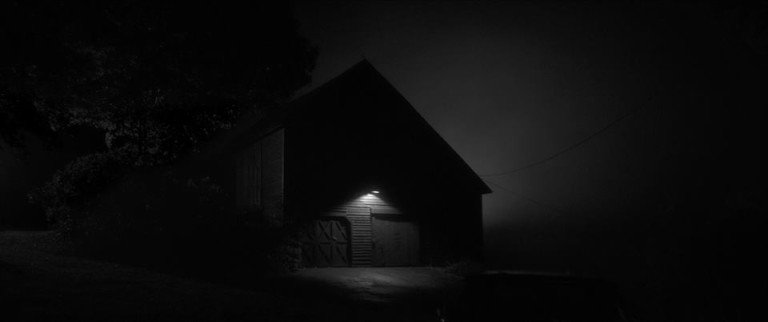Alireza Khatami’s Turkish-language thriller, “The Things You Kill” (2025), shows a literature professor going through a reckoning. We see him contemplating his self-worth after realizing some details about his past and the future. That’s why the film falls in the vein of dramas that Vince Gilligan and Peter Gould spent over a decade perfecting through their work on American television.
Much like their shows, Khatami’s film follows a man breaking bad after an incident leads him to take some reckless steps — even if they are the last thing someone would expect from someone like him. While trading in the familiar tropes of trauma-driven narratives, the film stands out due to its surrealist approach.
“The Things You Kill” is a drama about a man confusing repentance with revenge, thus digging a deeper hole for himself as he recklessly tries to mend his self-perception. He considers it almost as a mode of self-improvement, hoping to write his wrongs by being a reactionary rather than living with the guilt of his past actions or lack thereof. It’s no surprise that his delusions rarely help him to find a healthier way forward. Instead, they resort to literal manifestations that seem Kafkaesque, borrowing the nightmarish and disorienting nature of the Czech writer’s work to turn an intense moral drama into an atmospheric horror-thriller.
Khatami capitalizes on the enigmatic nature of his film’s premise, characters, and events in a way that invites interpretation rather than simply resorting to routine explanations. So, the more you learn about its characters, especially the protagonist, the more you realize how little you know about them.
In that context, it departs from Khatami’s most recent work on “Terrestrial Verses,” where he and Ali Asgari are more blunt with their arguments. It made sense for that film, since it essentially served as a middle finger to a deeply patriarchal and authoritative regime that strips people of their dignity. However, it could have detracted from the appeal of his latest film, making it seem too didactic.
“The Things You Kill” also confronts patriarchy and its effects on men struggling with their allegiance to the codes of masculinity. However, instead of an overt critique, Khatami focuses on the interiority of his protagonist and the surreal overtones of his narration, letting them guide us through the thematic layers. It essentially shows Ali (Ekin Koç), a man in his late thirties or early forties, having an existential crisis after a tragic incident. Until that happens, he seems like a decent man, living a reputable life as a university professor who clearly cares about his work and is well-educated. He doesn’t seem like a particularly objectionable person in his marriage either.

Also Read: Penetrating the Patriarchy and Exploring the (Lack of) Feminine in An Exercise In Discipline: Peel (1986)
Back home, he confronts his father, Hamit (Ercan Kesal), for ignoring his ageing mother’s health concerns, or knowing the right course of action but refusing it out of his generational stubbornness. That’s why the aforementioned incident shifts gears for his character, pushing him to reflect on his choices and find a way out of the dread that he is suddenly left to deal with. Around this time, he meets Reza (Erkan Kolçak Köstendil), a similarly well-educated man who wants to work as a gardener, likely because he is struggling to find work otherwise. His situation does not sound too different than Ali, who is on the verge of losing a life he had meticulously built over the years.
Ali stayed away from conflicts for personal sanity, while harboring qualms towards himself and his father. However, the veneer of respectability begins veering off when the things that he defines himself by start falling out of his grip. So, the tragedy and the simultaneous meeting with the mysterious gardener lead him on a transformative journey, as he seeks retribution from the villains in his story. Since that misguided moral awakening, the film swings between the literal and the representational aspects of his reality to offer a deeper understanding of his remorse and a lack of judgment, which leads him to seek salvation without the necessary self-actualization.
The film doesn’t have much to say beyond the rudimentary observations of stories about broken men, as it reveals the norms and the traits passed on from one generation to the next. Still, it works well as a brooding mystery thriller that makes the most of the literal darkness and barrenness surrounding the protagonist. Although occasionally trading into the literalism plaguing the 21st-century scripts, it leaves enough room for ambiguity for the audience to decode and reflect upon its musings.
The characters appear primarily in relation to the protagonist, but the direction and performances make them appear as fuller personalities. Their actions reveal insights about gender privilege, where submission and surrender take different meanings based on where you stand in that structure.
While Koç and Köstendil bring a raw, near-stoic intensity to represent one side, Hazar Ergüçlü conveys quiet resilience through her part as Ali’s wife, unlike the clichéd reactionary nature of her husband’s actions, borne out of his growing fears of ineptitude and lack of resourcefulness. The focus remains on the male psyche more than the female, but Khatami builds enough intrigue through his style that you stay invested in it as a genre exercise, despite its routine observations.




![Wildland [2020]: ‘Fantasia’ Review – Danish ‘Animal Kingdom’ is about the vicious circle of violence](https://79468c92.delivery.rocketcdn.me/wp-content/uploads/2020/08/Wildland-Movie-Review-highonfilms-3-768x442.jpg)

![Somebody’s Darling [2016] : Supernatural Manifestation of Fraternity Culture](https://79468c92.delivery.rocketcdn.me/wp-content/uploads/2017/12/somebodys-darling-1-1024x576-768x432.jpg)

